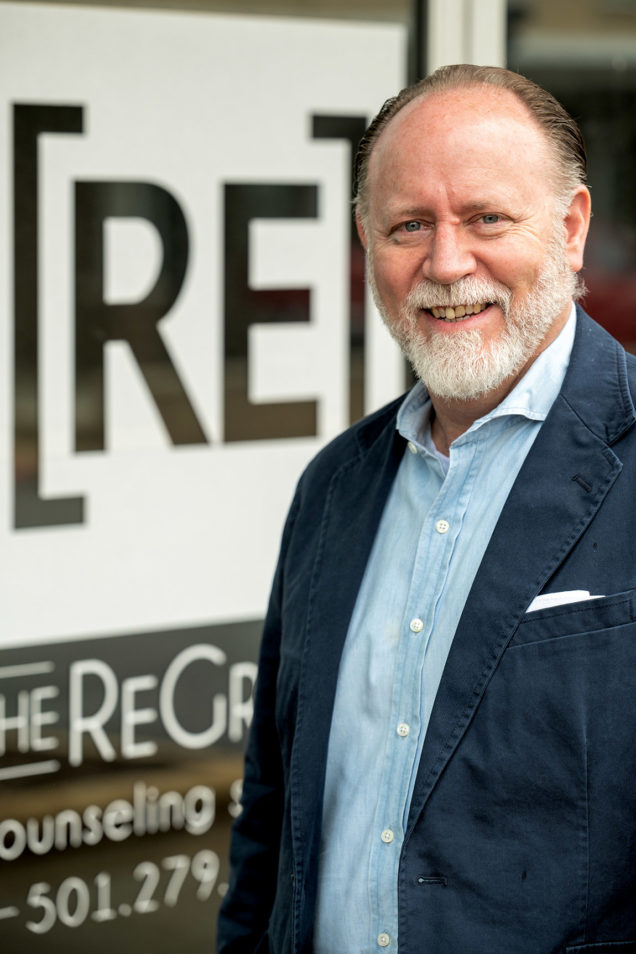Jim Galyan (’88, MFT ’08), a partner and therapist at ReGroup in Searcy, shares his thoughts on the mental health struggles many are facing as a result of the COVID-19 pandemic.

Fear, confusion and disbelief started early in 2020. I remember people saying they were not sure we would meet the following Sunday at church. I thought there was no way that could happen. I was stunned to receive the message, midweek, that church services were, indeed, canceled. Things became very real with the announcement that March Madness would be lost as well.
The following week my wife was diagnosed with cancer. Surgery was scheduled and canceled twice due to closures and furloughs as hospitals prepared for the COVID-19 crisis. What came next were additional complications due to testing, chemo and radiation. While some folks were scrambling to find toilet paper and prepare for what felt like a long snow day, others were learning to sing songs as they washed their hands compulsively. These were odd times. We were told to socially distance ourselves and stop shaking hands. Hugs were definitely out. Eventually, faces became masked, and reality began to sink in.
At our counseling offices, we documented temperatures and asked every client a series of questions about potential symptoms. We fumigated offices between sessions, added air filters to every room and cleaned doorknobs and surfaces multiple times a day.
Many clients and therapists were not comfortable coming to the office in the early days, so we made arrangements for teletherapy, as well as completed additional training. Conflicting reports added to the confusion, and conspiracy theories abounded. We grew to know the experts and tried to decipher the constantly changing information on how best to respond. As all of this was happening, we watched political and racial division grow. The threadbareness of our human race was beginning to show.
Two years later, we are still adjusting to the psychological toll the pandemic has taken on people worldwide. Death, illness, isolation and job loss, along with other interruptions to our normal lives, have weighed heavy on many. Weddings, funerals, graduations and holiday gatherings were lost. Schools were closed and quickly shifted online, creating a dilemma for parents, students and teachers. Many abruptly adapted to working from home. We learned the term “essential workers.” For those who had served us without much recognition, we soon found new gratitude. This compounded stress was beginning to show, and there were increased reports of public outbursts, addiction, abuse and despair.
Global studies show that one in four people experienced some level of depression. Other studies reveal extreme growth in anxiety, depression and/or sleep disturbance. Unavoidable increased screen time proved to have an adverse impact. As we struggled to find connections online, it only added to our fatigue. Only now are we beginning to discover the hidden mental health side effects of the global pandemic.
We love the illusion of control. This period of history is a reminder of how little control we really have. The number of clients grew exponentially, and the demand for counseling services overwhelmed our ability to adequately serve. Social anxiety increased when many social skills atrophied. Existential uncertainty grew as our church attendance saw declines. Many are struggling to move to acceptance of a new normal.
Yet, we have also discovered there are some things we might not want to return as they were. I have heard it said, God does not waste a struggle. Maybe this period has brought some things to the surface that need attention. New appreciations are causing some to adjust to shifting priorities. Like a new landing on Mount Ararat, maybe it’s time to redefine what once was and realize the importance of connection, redemption and what could be.